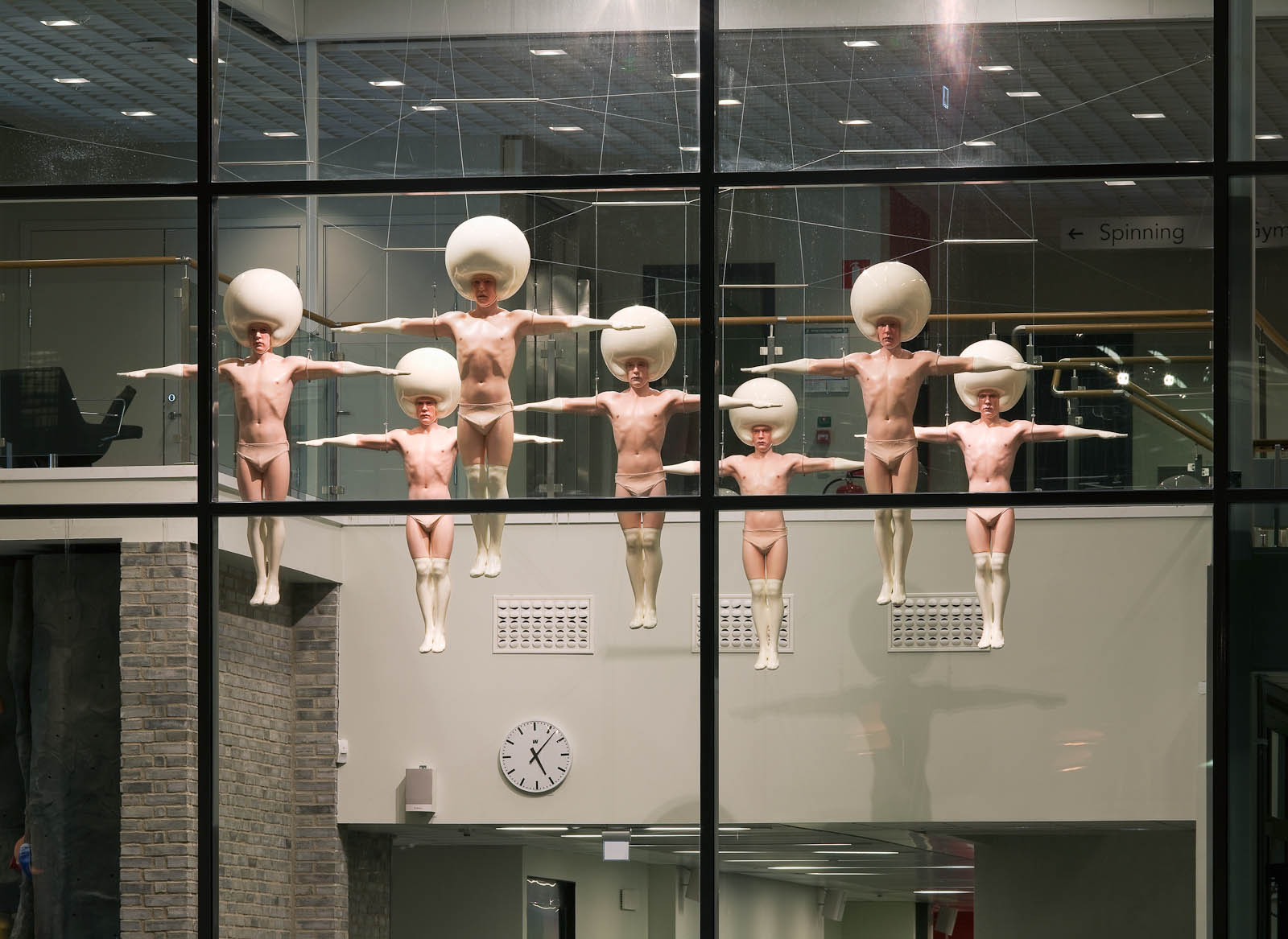
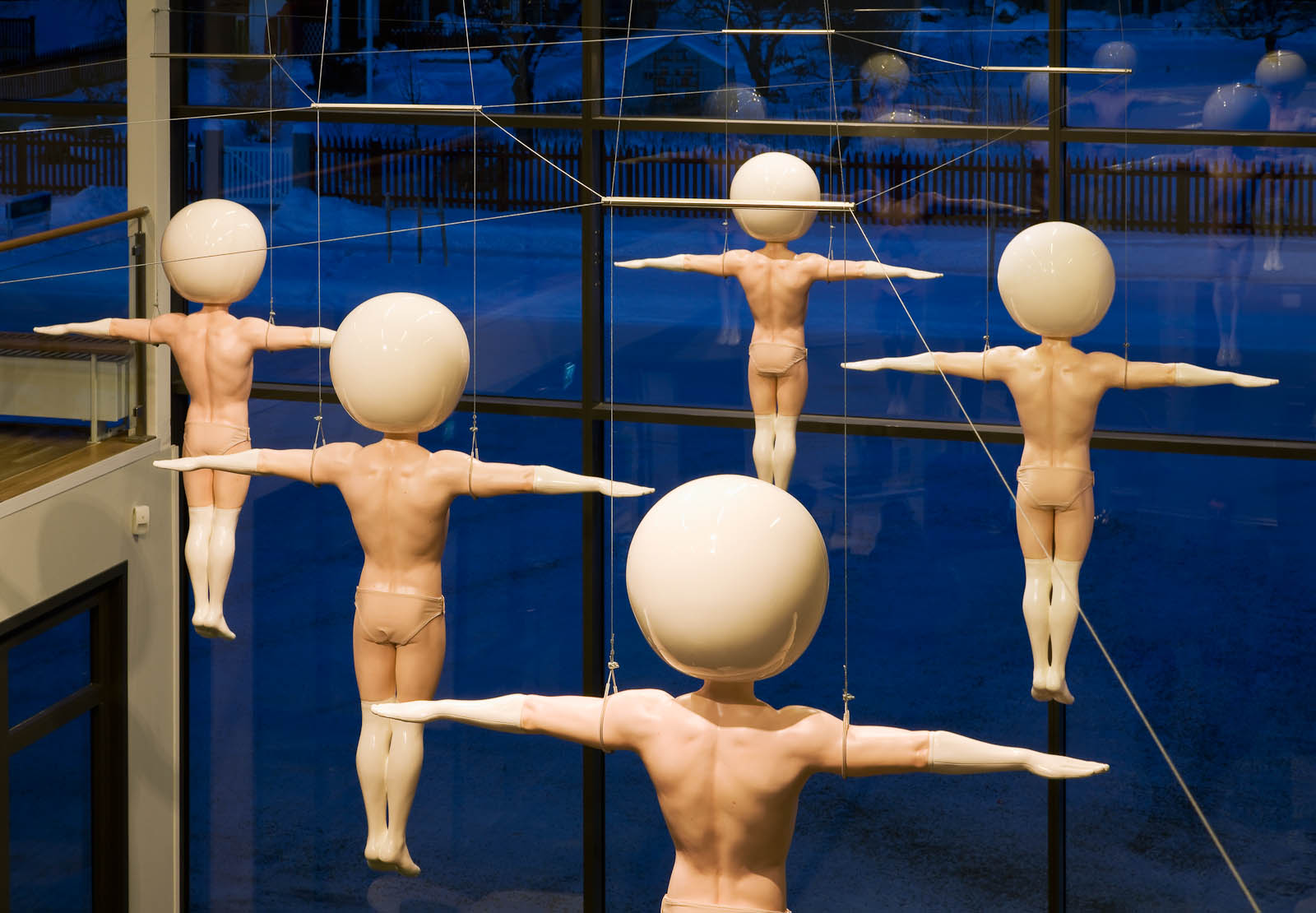
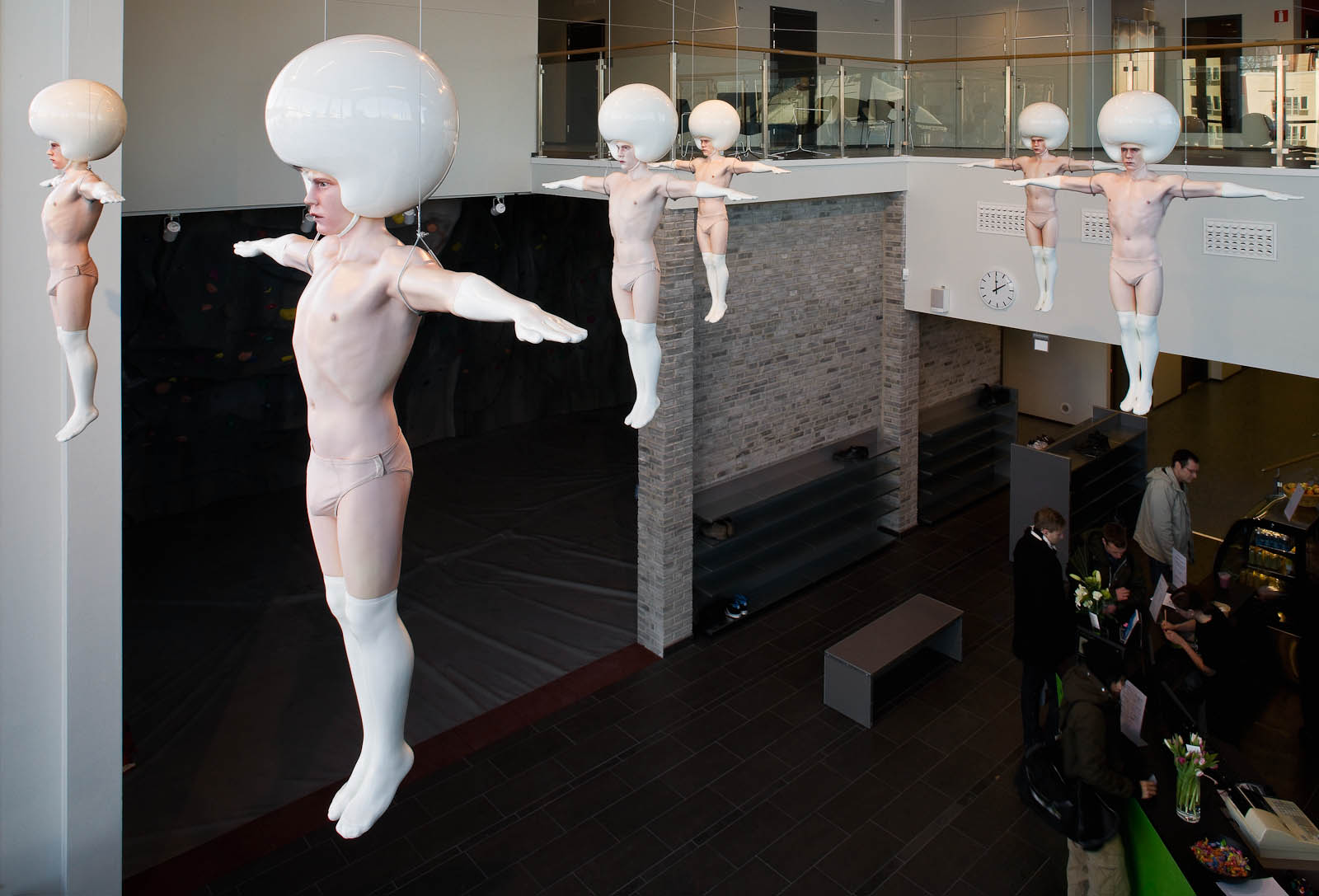
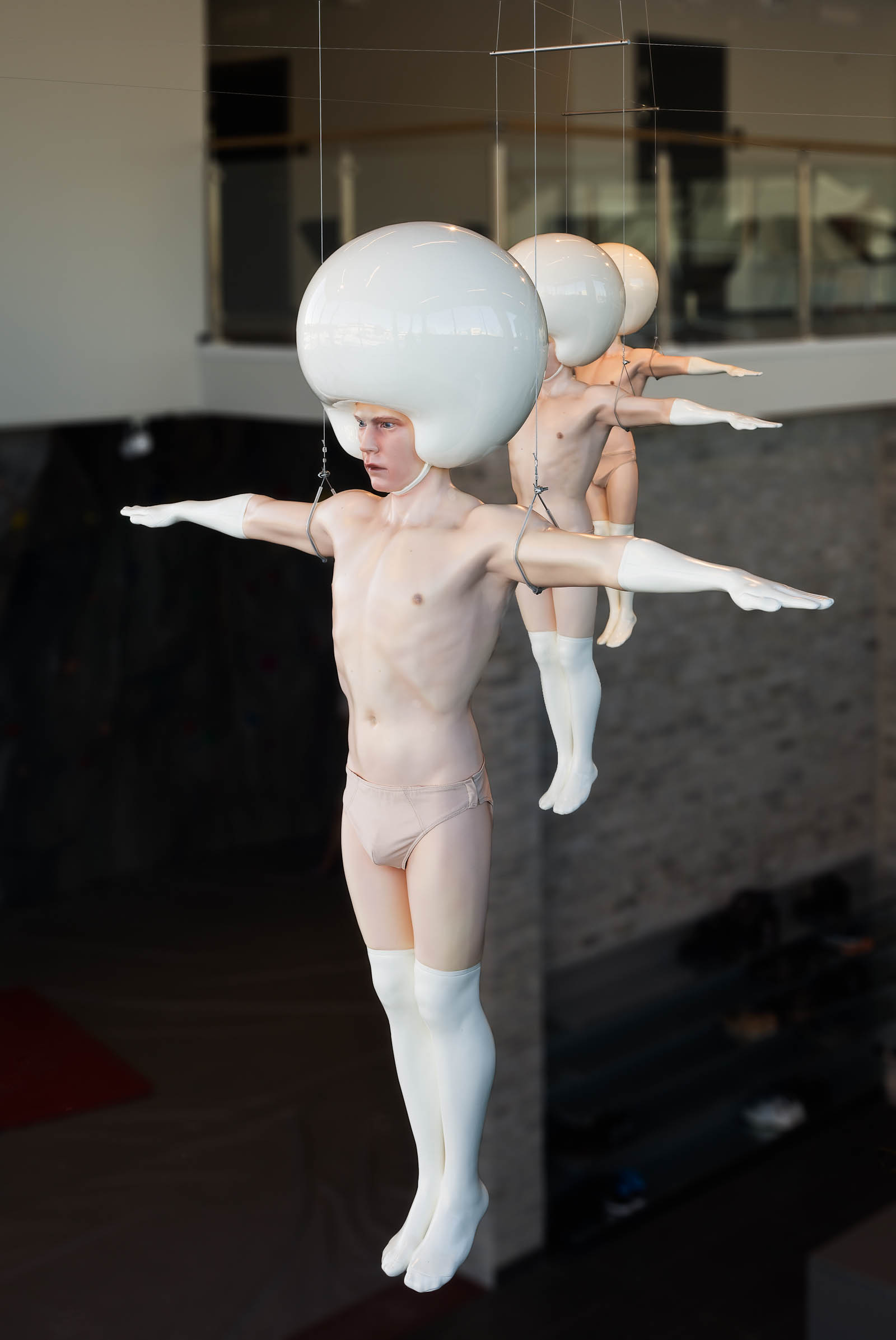
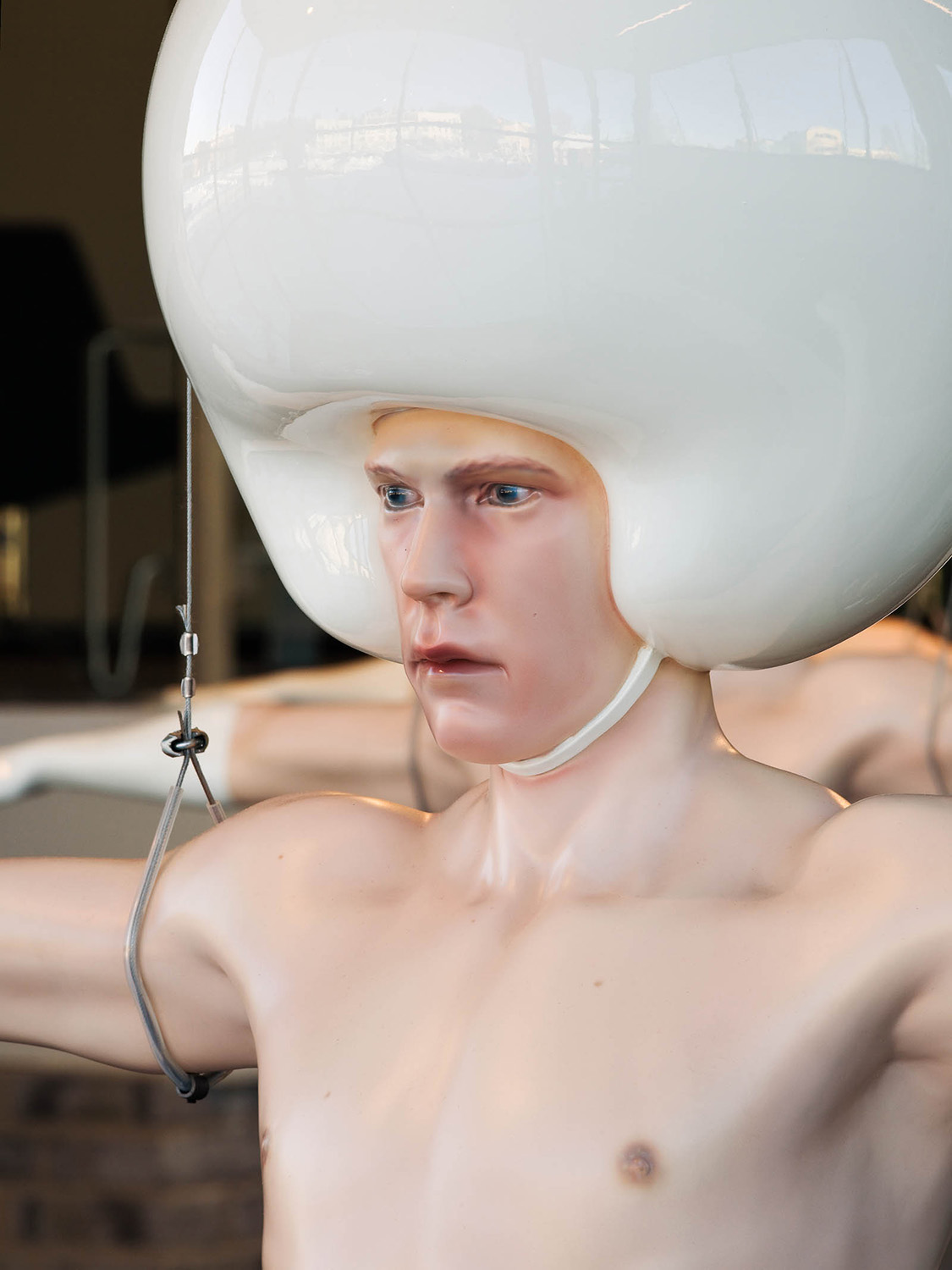
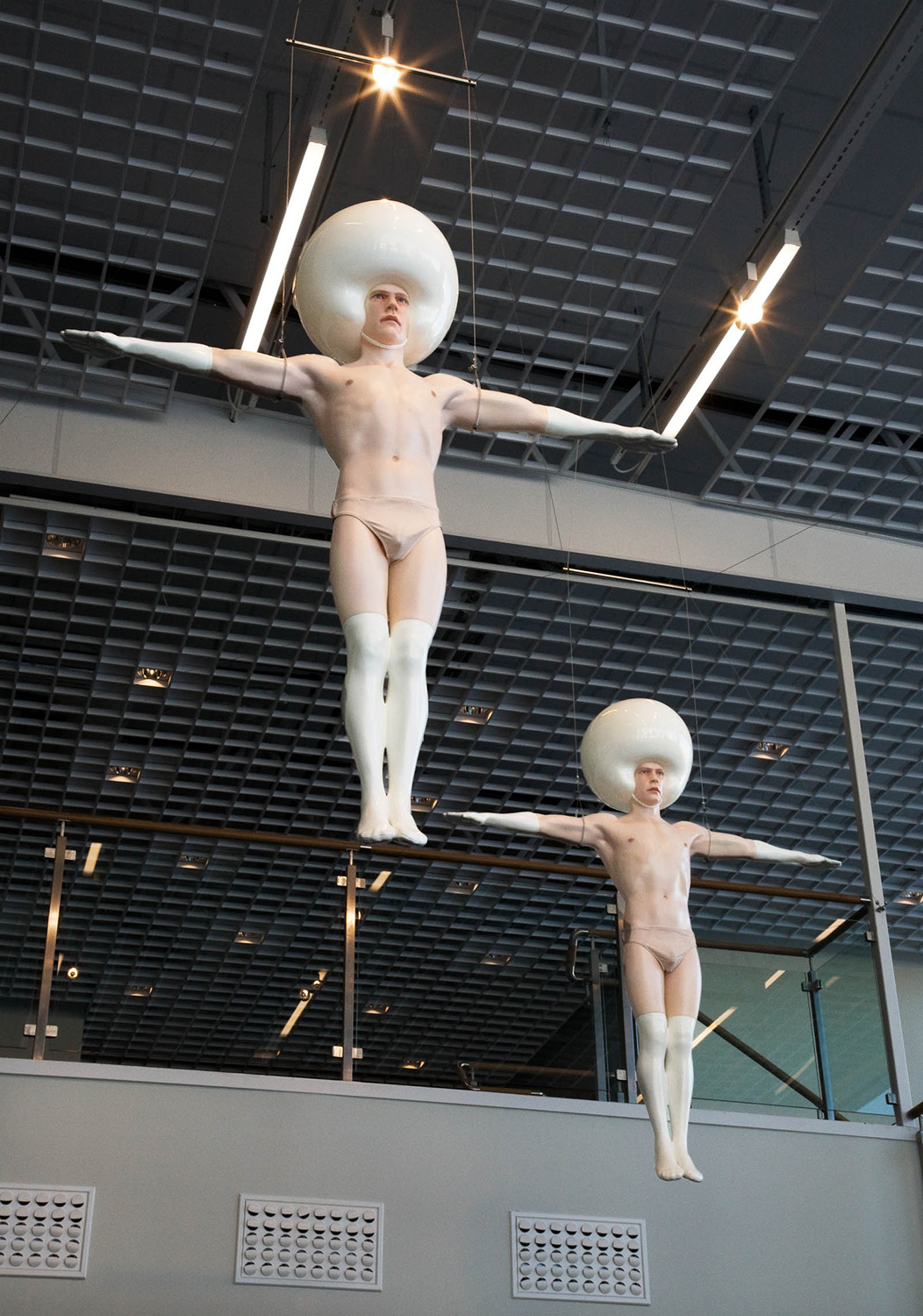






In his work, Christian Pontus Andersson wields the key to a parallel universe inhabited by trim male elves. These creatures are related to angels, descended from Atlas the Titan, and, like the ancient gods, they need physical bodies, their own to perfect, those of others to caress. We can call them transcenders. They live in mirrored halls, eating glass cakes and stretching to distorted harp chords. They exercise their bodies in melancholy watch over our longing for the pleasures of transformation. Now and then, the artist is permitted to escort a few of these beings to the world of grocery bags and rubber boots, where they agree, although freezing, to suspend their flight.
If these beings are the new gods, they bless us by carrying the burden of perfection that man is too feeble to bear.
Above the heads of the athletes, seven male figures assume their positions, hanging by cords and wires, but also firmly rooted in classical geometry and sculpture. The surrounding architecture and the trapezes that they are hanging from abide by the laws of Euclid’s geometry. With their light make-up they remind us that the nude marble of classical sculpture was once naturalistically-perhaps even vulgarly-painted. Intimate clothing softens the terse perfection and covers the body parts most sensitive to touch: gloves, socks, chastely hooked underpants, and over-sized helmets that give the troop a space-age couture aesthetic, in the style of Courrege hats for weightless elegance. The body formation is familiar from aerobics classes, with their narcissistic composition of sweaty anatomies. Within ourselves we also carry the image of a group of crucified men on Golgotha. Or we might associate to a Michael Jackson video directed by Leni Riefenstahl.
If these beings are the new gods, they bless us by carrying the burden of perfection that man is too feeble to bear. Atlas was sentenced to take the world on his shoulders in punishment for rebelling against the gods of the new era. His name was given to those who transcend bodily limitations-the athletes- but also to the map book, the manifestation of boundaries, printed to guide those who wish to transcend these boundaries in thought or action. Now, the transcenders shoulder the burden of the athletes.
Malin Zimm
Find the artwork
Uppsala Universitet - Campus 1477 Uppsala Vintern 2010
von Kraemers allé 5, 752 37 Uppsala, Sverige